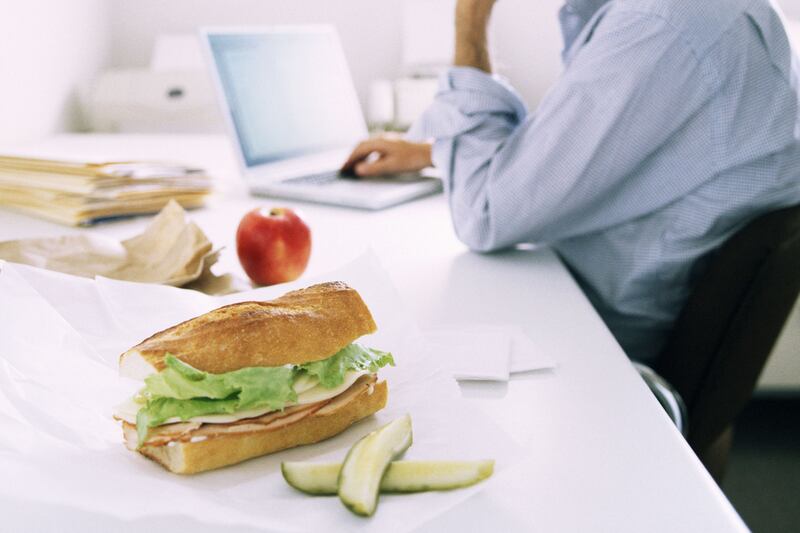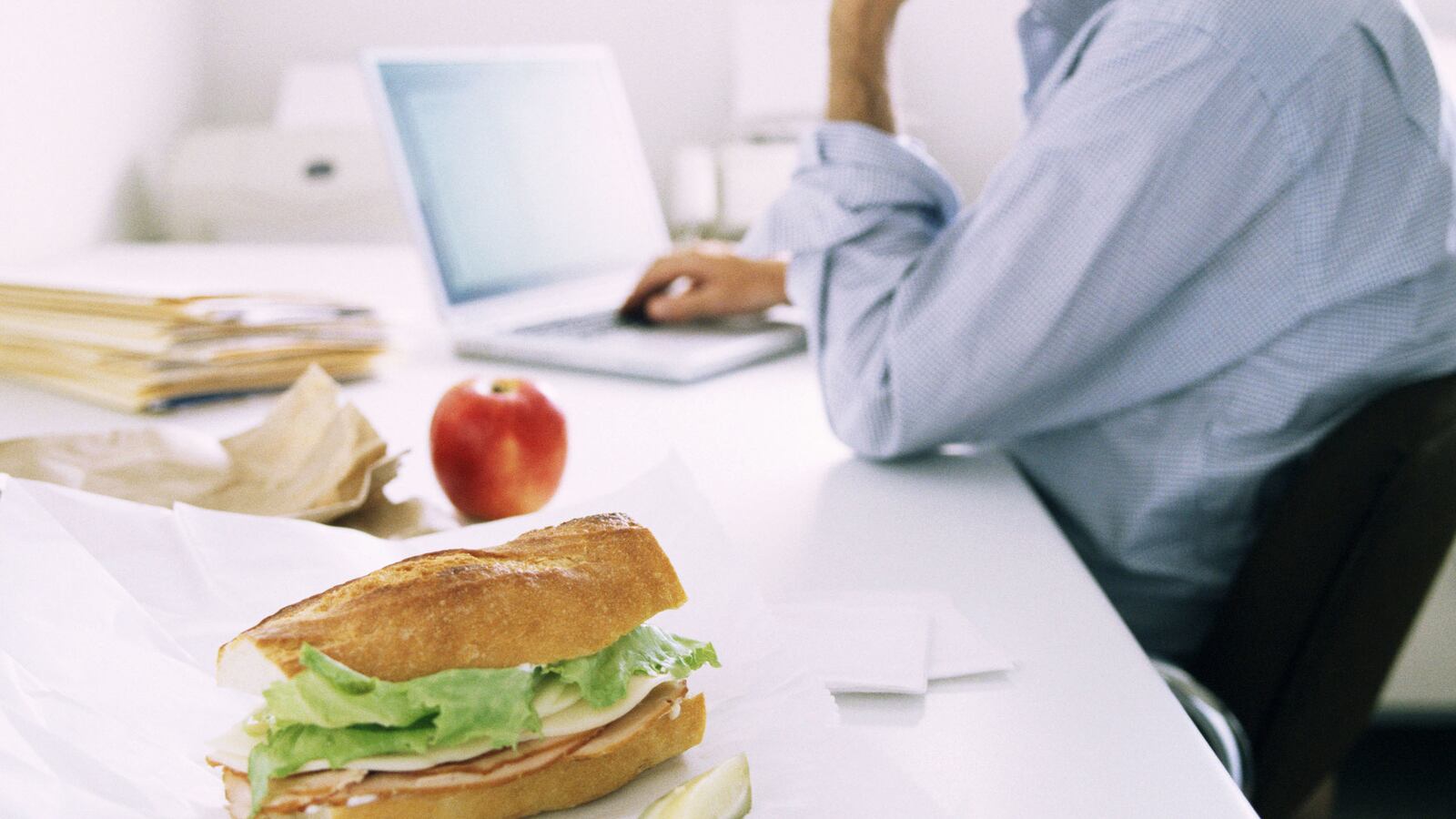There’s no such thing as a free lunch—even when it’s free. The Internal Revenue Service is giving Google a hard time about its practice of providing free lunch to employees at its facilities and simply deducting the costs as an expense—rather than treating the food taxable compensation to the engineers who chow down on turkey wraps every day. My colleague Megan McArdle argues that the IRS isn’t out of order in doing so.
The theory is this: people have to buy food with their own money. When a company buys $50 of food each week and gives it to an employee, it has the same net financial effect of giving the employee $50 in cash. Therefore, the food should be seen as taxable income.

But as someone who has long investigated the links between corporate culture, tax policy, and free food, I see it differently. My 24 years in the workplace, and countless trips to factories, corporate campuses, and offices around the world, have convinced me that workplace-provided food isn’t a different form of pay. Rather, it’s an instrument of social control. Companies use people’s basic needs and desire to consume calories as a way of channeling their efforts toward the greater corporate good.
For lots of workers, food and drink—caffeine, sugar, carbs, proteins—are fuel, no less than the electricity that powers the computers and telephones. And it is in the best interest of companies to ensure that employees are fueled efficiently. Encourage people to wander outside for a slice of pizza at lunchtime, and they might be apt to take a long walk, or idle in the park. In New York, a coffee break involves waiting for an elevator, going outside, and then waiting on line. If you provide people with the calories and caffeine they need to get through the day, you eliminate time-consuming breaks. Take away people’s excuse for not working, and you boost productivity.
Before he became the anti-junk-food mayor of New York City, Michael Bloomberg was a pioneer in the corporate provision of junk food. For decades, Bloomberg has made available to employees—at no charge—the entire contents of a convenience store. What started as coffee, chips, and cookies (snacks, not meals), quickly expanded to things that were like meals (fresh fruit, cereal and oatmeal for breakfast, cans of tuna fish, soup, and noodle packets for lunch).
At many workplaces, food and snacks are deployed selectively – as morale builders. Companies routinely order in pizzas when teams are crashing on a deadline, or provide meals on nights when the entire staff has to stay late. Again, this is not a way of paying employees. Rather, it’s a way of reducing the friction and hardship involved in working overtime and under unusual circumstances.
Many companies run cafeterias where the meals aren’t free, but are subsidized: Time Inc., Sears, Goldman Sachs, and factories all over the place. These corporate food courts and chow lines aren’t another way of paying people. Rather, they serve a corporate goal. If you run a factory five miles from town or your offices are in a huge campus a few miles from stores, you want to keep people on the premises to ensure maximum productivity. If you’re running a precision manufacturing operations, you need people on the lines at precisely the right times. Providing meals on-site—free, subsidized, or market rate—is a way of ensuring that workers will be in the right place at the right time.
With its network of cafeterias, Google has added a new wrinkle. The free food helps further what it views as a vital corporate goal—getting people to talk to one another in an unstructured environment. Some smart companies apparently believe that, in this age of mobile workers and constant screen time, face-to-face interaction with people who may not be on your instant messaging list can lead to innovation and profitable collaboration. It makes sense to design offices in a way that encourages such interaction—like breaking down barriers between cubicles, or providing free lunch in an open-plan cafeteria. When Google veteran Marissa Mayer took her post as chief executive officer at Yahoo!, one of her first moves was to start offering free lunches at many facilities. The move was of a piece with her efforts to discourage telecommuting. If the company is to be unified, if people are to work together, they should work in the same place and sit down for lunch. You can’t force people to break bread with one another. But offering the grub for free is a powerful lure.
The provision of free food harks back to an older era of corporate paternalism. And there is a degree to which corporate food programs like Google’s are efforts to structure the nonwork lives of employees in ways that are advantageous to the company. In some ways, it’s no different than what the folks at Henry Ford’s Social Department did in the 1910s and 1920s—visiting assembly-line workers at home to make sure they were leading a wholesome life. Companies can’t control what people ingest on their own time, even though companies wind up paying the costs for such behavior in the form of higher health-care costs. But they can try to control what people eat, drink, and smoke while they’re at work. Most companies have blanket bans on drinking and smoking in the workplace. As Eliza Shapiro reports today, companies are increasingly willing to offer cash and other incentives to employees who lose weight— precisely because it can reduce costs and boost profits. While there’s nothing stopping employees from bringing cholesterol-laden fried foods to the office, cafeterias that provide free organic salads, whole-grain breads, and sushi can be a powerful influence on following a healthy diet.
If all these arguments fail to convince the IRS that Google’s food provision isn’t compensation, there’s one last argument it can try. The cafeterias are really just an extension of the company’s core business. Google isn’t a provider of food content that charges money for it; it’s just aggregating the food and letting users consume it for free.






